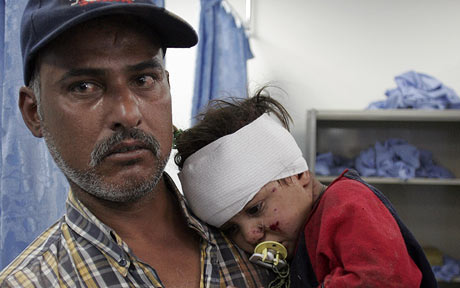
At least 57 people have been killed in Baghdad, following a series of bombings in the city. Three female suicide bombers and a roadside bomb are to blame for the attacks aimed at Shia Muslims.
This week, many Shia Muslims are making the Kadhimiya pilgrimage, one of the major events on the Shia Muslim calendar. The neighborhood surrounding the Kadhimiya mosque was once an epicenter of Shia learning. Over the years, it has been at the forefront of conflict in Iraq – and this week, the sacred site is once again marked by blood.
This pilgrimage was outlawed by Saddam Hussein, who was responsible for the brutalization of Shia Muslims during his reign. The ceremony has grown in size since his defeat and death. As evidenced by this latest outbreak in sectarian violence, any security force would have a long way to go before it can claim success in Baghdad.
A few weeks ago, I was speaking with some colleagues about conflict, and the casualties that have been the result of violence in Iraq, Afghanistan, Gaza and beyond. We talked about how we are often (not always) able to put a face, name, and story behind American victims. Not so when it comes to others. We hear body counts. Injury counts. We may see a photo like the one above. “A man” and “a child”, they are called.
This isn’t good enough. It isn’t good enough to know a number that can rarely be confirmed. We – Muslims, non-Muslims, Americans and our fellow global citizens – must have something to put to those numbers. I want to know who we have lost.
As a Muslim, I am angry. I am angry that a Sunni would dare to kill in my name. I want to know the names of the dead so I may pray for them. I want to know their names to whisper apologies to their families. I want to know if “a man” and “a child” have lost a wife and mother.
As an American, I grieve the loss of our soldiers. I stop and watch their faces on the news. I listen to the mothers, the younger brothers, the grandparents and partners. I want to thank them. I want to say that yes, I believe this war is wrong but yes, I thank them still.
For both, I cry. For both, I love.
